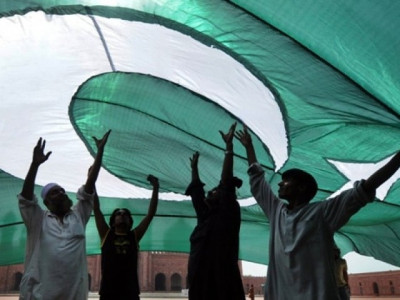Remittances, Roots, and Resilience: The Lifeline of a Nation

The Pakistani diaspora is a powerful economic engine and an indispensable part of the nation’s growth story. Comprising millions of individuals spread across the globe, this community serves not only as cultural and political ambassadors but also as the backbone of Pakistan’s economy through remittances, investments, and advocacy. Their contributions, both tangible and intangible, continue to play a transformative role in shaping Pakistan’s global image, driving development, and reinforcing diplomatic ties.
According to the United Nations Department of Economic and Social Affairs, Pakistan boasts the 7th largest diaspora globally among the estimated 272 million-strong diaspora population. This vast and diverse community significantly influences Pakistan’s image, economy, and foreign diplomacy. Their financial contributions and engagement abroad not only inject much-needed foreign exchange into the economy but also provide a stabilizing buffer for families across the country, especially in times of economic uncertainty.
The World Bank ranks Pakistan among the top ten remittance-receiving countries worldwide. These remittances account for a considerable share of the nation’s GDP, acting as a vital source of income for countless households. In the fiscal year 2022–23 alone, overseas Pakistanis sent home a record-breaking sum of over $26 billion. This figure is more than just an economic statistic—it represents children sent to school, healthcare provided to the ill, small businesses that flourished, and communities that sustained themselves through difficult times.
The State Bank of Pakistan reports that remittance inflows during this period primarily came from the Gulf region, particularly Saudi Arabia, followed by the United Arab Emirates, the United Kingdom, and the United States. In the first eight months of FY 2024, KSA remained the single largest contributor, sending around $4.4 billion, making up nearly 24% of the total volume. The UAE contributed approximately $3.1 billion (17%), while the UK sent $2.7 billion (15%). These numbers reflect the depth of economic interdependence that Pakistan shares with countries hosting large diaspora populations.
But the diaspora’s impact extends far beyond the economic realm. Pakistanis abroad are increasingly investing in real estate, small and medium-sized enterprises, and the stock market, creating jobs and contributing to long-term infrastructure development. Initiatives like the Roshan Digital Account have enabled overseas Pakistanis to directly participate in Pakistan’s financial markets and invest in government bonds, further integrating their resources into the national development framework. These efforts are laying the groundwork for improved public services in sectors such as education and healthcare, while also attracting broader foreign investment through increased financial stability.
Beyond remittances and investment, the Pakistani diaspora serves as an influential diplomatic and advocacy force. In host countries like the United States, the United Kingdom, Australia, and the Gulf states, Pakistanis have built networks of influence and goodwill. According to a Pew Research Center survey, 53% of Pakistanis living abroad believe that their presence positively impacts how others perceive the country. Whether through grassroots advocacy, political lobbying, or public diplomacy, members of the diaspora often work to advance Pakistan’s interests on global platforms.
In the United States, for instance, the Pakistani American community has engaged with Congress on issues related to U.S.-Pakistan relations, Kashmir, and human rights. These advocacy efforts help maintain Pakistan’s visibility in key foreign policy circles. In the United Kingdom, Pakistani-origin parliamentarians and civil society leaders have worked to strengthen bilateral relations, contributing to policy discussions on trade, immigration, and security cooperation. In Australia, the community has lobbied for improved educational opportunities and institutional partnerships benefiting Pakistani students.
Meanwhile, in countries like Saudi Arabia and the UAE, where millions of Pakistani workers reside, the diaspora plays a critical role in strengthening bilateral ties. Through their hard work, discipline, and community engagement, they contribute to the economies of their host nations while maintaining deep familial and economic ties with Pakistan. This dual engagement makes them vital stakeholders in sustaining and enhancing Pakistan’s strategic partnerships.
The diaspora’s ability to alleviate poverty through remittances remains one of its most immediate and meaningful impacts. These financial flows help reduce income inequality, uplift underdeveloped regions, and support basic needs in households that might otherwise fall below the poverty line. The consistent and stable nature of these remittances, even during global economic downturns, highlights the diaspora’s resilience and deep-rooted commitment to the homeland.
But perhaps the most promising aspect of the diaspora’s influence lies in its potential to reshape Pakistan’s future. By supporting policies focused on trade liberalization, economic growth, and transparent governance, overseas Pakistanis can help reposition the country as an attractive destination for global investors and development partners. Their success stories abroad serve as inspiration for young Pakistanis at home, showing what is possible with hard work, opportunity, and a connection to one’s roots.
The Pakistani diaspora is more than a source of income—it is a reservoir of innovation, talent, and goodwill. Its economic contributions have proven to be a lifeline for the country, while its diplomatic and cultural engagement has helped position Pakistan more favorably on the world stage. As Pakistan looks toward a more stable and prosperous future, embracing and empowering its diaspora will be crucial. The connection between roots and remittances is not just financial—it is the story of a people shaping the destiny of a nation, no matter how far from home they may be.











